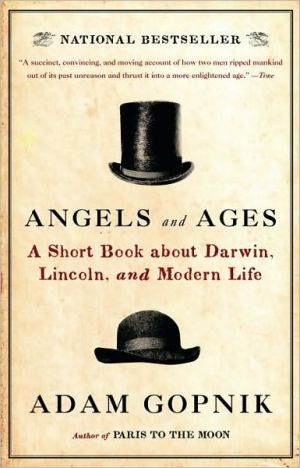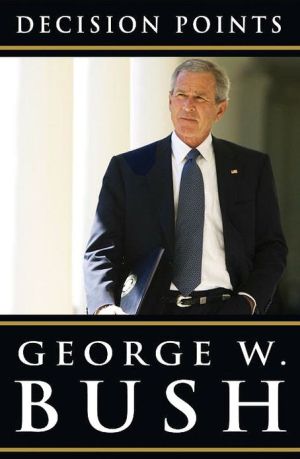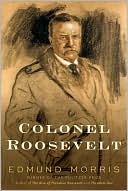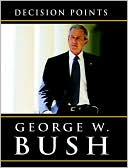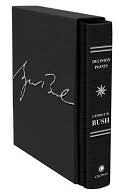Angels and Ages: A Short Book about Darwin, Lincoln, and Modern Life
In this captivating double life, Adam Gopnik searches for the men behind the icons of emancipation and evolution. Born by cosmic coincidence on the same day in 1809 and separated by an ocean, Lincoln and Darwin coauthored our sense of history and our understanding of man's place in the world. Here Gopnik reveals these two men as they really were: family men and social climbers, ambitious manipulators and courageous adventurers, grieving parents and brilliant scholars. Above all, we see them...
Search in google:
On a memorable day in human history, February 12, 1809, two babies were born an ocean apart: Abraham Lincoln in a one-room Kentucky log cabin; Charles Darwin on an English country estate. It was a time of backward-seeming notions, when almost everyone still accepted the biblical account of creation as the literal truth and authoritarianism as the most natural and viable social order. But by the time both men died, the world had changed: ordinary people understood that life on earth was a story of continuous evolution, and the Civil War had proved that a democracy could fight for principles and endure. And with these signal insights much else had changed besides. Together, Darwin and Lincoln had become midwives to the spirit of a new world, a new kind of hope and faith.Searching for the men behind the icons of emancipation and evolution, Adam Gopnik shows us, in this captivating double life, Lincoln and Darwin as they really were: family men and social climbers; ambitious manipulators and courageous adventurers; the living husband, father, son, and student behind each myth. How do we reconcile Lincoln, the supremely good man we know, with the hardened commander who wittingly sent tens of thousands of young soldiers to certain death? Why did the relentlessly rational Darwin delay publishing his “Great Idea” for almost twenty years? How did inconsolable grief at the loss of a beloved child change each man? And what comfort could either find—for himself or for a society now possessed of a sadder, if wiser, understanding of our existence? Such human questions and their answers are the stuff of this book.Above all, we see Lincoln and Darwin as thinkers and writers—as makers and witnesses of the great change in thought that marks truly modern times: a hundred years after the Enlightenment, the old rule of faith and fear finally yielding to one of reason, argument, and observation not merely as intellectual ideals but as a way of life; the judgment of divinity at last submitting to the verdicts of history and time. Lincoln considering human history, Darwin reflecting on deep time—both reshaped our understanding of what life is and how it attains meaning. And they invented a new language to express that understanding. Angels and Ages is an original and personal account of the creation of the liberal voice—of the way we live now and the way we talk at home and in public. Showing that literary eloquence is essential to liberal civilization, Adam Gopnik reveals why our heroes should be possessed by the urgency of utterance, obsessed by the need to see for themselves, and endowed with the gift to speak for us all. The Barnes & Noble Review I've always had trouble reading Adam Gopnik. It's not due to lack of clarity or interest; Gopnik's mind is lively, his prose invariably tasty. He is perhaps our premiere bourgeois fabulist, and his writing spans the human career, comprehends our highs and lows, and hymns the apotheosis of the liberal arts in America. My vexation is small: I'm tripped by his parentheticals, in which whole worlds of thought and epochs of history are contrapuntally convoked, hyperbolically summarized, and breezily dismissed. Come to the end of a sentence, whatever the topic, and you'll find the sash thrown open to a brace of non-sequitur name-checks -- perhaps Emily Dickinson and the Doge of Venice -- tumbling arm in arm to a neat defenestration, close bracket. So I approached Gopnik's latest book with some trepidation -- for at first glance, Angels and Ages (subtitled A Short Book about Darwin, Lincoln, and Modern Life) would seem to take one of those parentheses (Lincoln and Darwin were born on the same day in 1809) and stretch it, saltwater taffy-like, into a book. Long before the final parenthesis appeared, however, I was convinced that this elegant digression of a work will win itself a worthy place in the bicentennial bibliography of the two titanic figures it embraces.
The middleweight champion [of the early twentieth century, Stanley Ketchel] was stunned by [Wilson] Mizner’s recitation of the Langdon Smith classic that starts “When you were a tadpole and I was a fish, In the Palaeozoic time” and follows the romance of two lovers from one geological age to another, until they wind up in Delmonico’s. Ketchel had a thousand questions about the tadpole and the fish, and Mizner, a pedagogue at heart,took immense pleasure in wedging the whole theory of evolution into the fighter’s untutored head. Ketchel became silent and thoughtful. He declined an invitation to see the town that night with Mizner and [Willus] Britt. When they rolled in at 5 a.m., Ketchel was sitting up with his eyes glued on a bowl of goldfish. “That evolution is all the bunk!”he shouted angrily,“I’ve beenwatching those fish nine hours and they haven’t changed a bit.”Mizner had to talk fast; one thing Ketchel couldn’t bear was to have anybody cross him.\ —Alva Johnston, The Legendary Mizners\ Americans seemed to fascinate Picasso. Once, in Paris, he invited the Murphys to his apartment, on the Rue de la Boëtie, for an apéritif, and, after showing them through the place, in every room of which were pictures in various stages of completion, he led Gerald rather ceremoniously to an alcove that contained a tall cardboard box. “It was full of illustrations, photographs, engravings, and reproductions clipped from newspapers. All of them dealt with a single person—Abraham Lincoln. ‘I’ve been collecting them since I was a child,’ Picasso said, ‘I have thousands, thousands!’ He held up one of Brady’s photographs of Lincoln, and said with great feeling, ‘There is the real American elegance!’ ”\ —Calvin Tomkins, Living Well Is the Best Revenge\ We are all pebbles dropped in the sea of history, where the splash strikes one way and the big tides run another, and though what we feel is the splash, the splash takes place only within those tides. In almost every case, the incoming current drowns the splash; once in a while the drop of the pebble changes the way the ocean runs. On February 12, 1809, two baby boys were born within a few hours of each other on either side of the Atlantic. One entered life in a comfortable family home, nicely called the Mount, that still stands in the leafy English countryside of Shrewsbury, Shropshire; the other opened his eyes for the first time in a nameless long- lost log cabin in the Kentucky woods. Charles Darwin was the fifth of six children, born into comfort but to a family that was far from “safe,” with a long history of freethinking and radical beliefs. He came into a world of learning and money—one grandfather, Josiah Wedgwood, had made a fortune in ceramic plates. Abraham Lincoln was the second of three, born to a dirt- poor farmer, Thomas Lincoln, who, when he wrote his name at all, wrote it (his son recalled) “bunglingly.”\ Their narrow circles of immediate experience were held inside that bigger ocean of outlying beliefs and assumptions. In any era, there are truths that people take as obvious, stories that they think are weird or wrong, and dreams that they believe are distant or doomed. (We like stories about time travel and living robots, and even have some speculative thoughts about how they might be made to happen. But on the whole we believe that the time we’re living in, and the way we live in it, is just the natural way things are. We like strange stories but believe only a few.) The obvious truths of 1809, the kind that were taught in school, involved what could be called a “vertical” organization of life, one in which we imagine a hierarchy of species organized on earth, descending from man on down toward animals, and a judge appraising us up above in heaven. Man was stuck in the middle, looking warily up and loftily down. People mostly believed that the kinds of organisms they saw on earth had always been here and always would be, that life had been fixed in place since the beginning of a terrestrial time, which was thought to go back a few thousand years at most. The eighteenth-century Enlightenment had, of course, already deepened a faith in Reason among the elite, but it was not a popular movement. It had altered many ideas without changing most minds. ( John Stuart Mill could say, as late as the 1850s, that he was still almost the only Englishman he knew who had not been brought up as a believer.) The Enlightenment ideal of Reason was in any case bound by taxonomies and hierarchies, absolute and extended right through earth and time. That the long history of life might be one driven by shifting coalitions of contingency, with chance having at least one hand on the reins, was still a mostly unthinkable idea. The forms of life were set, and had never varied. “Species have a real existence in nature, and a transition from one to another does not exist” was the way one magus put it, decisively.\ People also believed, using what they called examples ancient and modern—and the example of the Terror in France, which had only very recently congealed into Napoleon’s empire, was a strong case—that societies without inherited order were intrinsically weak, unstable, and inclined to dissolve into anarchy or tyranny. Democracy in the sense we mean it now was a fringe ideal of a handful of radicals. Even in America the future of democracy was unclear, in part because of the persistence of slavery, which was still a feature of Western life. Democracy was hard to tell from mob rule and the tyranny of mob rule. Democracy existed, and was armed, but didn’t feel entirely liberal; the difference between reformist parliamentary government and true democracy seemed disturbingly large even to well- intentioned people. In the 1830s, Tocqueville, sympathetic to American democracy, was still skeptical about its chances, writing that “until men have changed their nature and been completely transformed, I shall refuse to believe in the duration of a government which is called upon to hold together forty different nations covering an area half that of Europe, to avoid all rivalry, ambition, and struggles between them, and to unite all their independent wills in the accomplishment of common designs.” Throughout Europe and America many thoughtful, truth- seeking people also believed in divine judgment and an afterlife in more or less literal terms.\ The thought of no time is monolithic, and the people of 1809 in England and America did not believe these things absolutely. The new science of geology was pressing back the history of the earth; old bones would start turning up that threatened old stories; the new textual studies of the Bible were pressing against an easy acceptance of their truth, too. And there were many Utopian radical democrats in both countries. We can find plenty of astonishing ideas in that day, just as we will find traces of the astonishing ideas of the next century somewhere on the fringes of our own time. But on the whole these ideas belonged to the world of what would have been called “fancy,” not fact.\ By the time Abraham Lincoln and Charles Darwin were dead—the American murdered by a pro- slavery terrorist in 1865, the Englishman after a long illness in 1882—the shape of history had changed, and the lives they had led and the things they had said had done a lot to change it. Two small splashes had helped to move the tide of time. Very different beliefs, ones that we now treat as natural and recognize as just part of the background hum of our time, were in place: the world was understood to be very, very old, and the animals and plants in it were known to have changed dramatically over the aeons—and though just how they had changed was still debated, the best guesses, then as now, involved slow alteration through a competition for resources over a very long time. People were convinced, on the whole, that democratic government, arrived at by reform or revolution, was a plausible and strong way to organize a modern nation—that republican regimes were fighters and survivors. (A giant statue, one of the largest since antiquity, of a goddess of Liberty was under construction in once- again republican France for a vindicated republican America, just to commemorate this belief.) Slavery in the Western world was, for the first time in thousands of years, finished (although racism wasn’t). Liberal republicanism and universalist democracy had begun the steady merger that persists to this day, so that most of us no longer see the governing systems of Canada and the United States as decisively, rather than locally, different.\ Most of all, people thought that, in one way or another, by some hand or another, the world had changed and would continue to change, that the hierarchies of nature and race and class that had governed the world, where power fell in a fixed chain on down, were false. Fixity was not reality. Life changed, and ways of living changed, too. Life was increasingly lived on what we can think of as a horizontal, with man looking behind only to see what had happened before, and forward to see what he could make next. On that horizontal plane, we are invested in our future as much as in our afterlife, and in our children more than in our ancestors. These beliefs, which we hold still, are part of what we call the modern condition—along with the reactive desire to erase the instability that change brings with it, to get us thinking up and down again, instead of merely back and forth.\ The two boys born on the same day to such different lives had become, as they remain, improbable public figures of that alteration of minds—they had become what are now called in cliché “icons,” secular saints. They hadn’t made the change, but they had helped to midwife the birth. With the usual compression of popular history their reputations have been reduced to single words, mottoes to put beneath a profile on a commemorative coin or medal—“Evolution!” for one and “Emancipation!” for the other. With the usual irony of history, the mottoes betray the men. Lincoln came late—in the eyes of Frederick Douglass, maddeningly late—and reluctantly to emancipation, while perhaps the least original thing in Darwin’s amazingly original work was the idea of evolution. (He figured out how it ran; he took a poetic figure familiar to his grandfathers and put an engine and a fan belt in it.) We’re not wrong to work these beautiful words onto their coins, though: the two were the engineers of the alterations. They found a way to make those words live.\ Darwin and Lincoln did not make the modern world. But they helped to make our moral modernity. The two little stories at the head of this chapter suggest just how widely their images and ideas had already spread within a half century of their deaths: in the first decade of the last century the concept of evolution troubled and fascinated and intrigued even a middleweight boxer, whose indignation at not actually seeing it happen anticipates that of many just- as- two- fisted skeptics today, while Lincoln’s face would haunt the imagination of an artist remaking art. For more than a century they’ve been part of the climate of modern life, systems in the weather of the modern world.\ The shared date of their birth is, obviously,“merely” a coincidence, what historians like to call an“intriguing coincidence.”But coincidence is the vernacular of history, the slang of memory— the first strong pattern where we begin to search for more subtle ones. Like the simultaneous deaths of Thomas Jefferson and John Adams on July 4, 1826, the accidental patterns of birth and death point to other patterns of coincidence in bigger things. ( Jefferson and Adams, born at about the same time, were likely to die at about the same time; that they willed themselves to live long enough to see in the holiday says something about the urgency of the new rituals of the Republic.)\ As long ago as the early twentieth century, the shared birthday of Darwin and Lincoln seemed central enough to an idea of liberal democratic civilization to have inspired a proposal for a binational, transatlantic holiday: the birthday of the two, “Lincoln, the embodiment of Anglo- Saxon devotion to Justice, and Darwin, the incarnation of Anglo- Saxon devotion to Truth,” should be declared an international holiday, a Massachusetts writer named William Thayer insisted in 1908, making the rational and good point that Lincoln was exceptional in being without malice, Darwin, in welcoming criticism and argument—though Thayer rather weakens his point, to our minds, by all those “Anglo- Saxon” attitudes. (Useful reminders, really, that similar assumptions, which will seem just as onerous or absurd to our great- grandchildren, linger in the corners of our minds, too.)\ My own head has been filled with images and ideas of the two men since I was small. My father introduced me first to Lincoln, pressing on me a picture book called Meet Mr. Lincoln, a handsome oversize thing connected to a television special of 1959, filled with black- and- white Brady photographs—and the gravity, the melancholy, the destiny of that face touched me as it has touched so many others. (Readers will recall that Alexander Portnoy, too, was turned on to a lifetime of commitment to human rights, among other human activities, simply by the soulfulness of the statue of Lincoln in downtown Newark, outside the Essex County Court House.) Darwin was my mother’s hero, though it would be years before, one summer on a beach, I actually read On the Origin of Species. Then I discovered, as have generations of readers since that fateful day in 1859 when the entire first print run sold out in a day, that it is not just a Great Book but a great book, an absorbing, wonderful adventure in argument, a beach read in which your view of the world is changed by the end even if your view of the world was agreeable to it at the beginning. It’s a Victorian hallucinogen, where the whole world suddenly comes alive and begins moving, so that the likeness between seagulls and sandpipers on the beach where you are reading suddenly becomes spookily animated, part of a single restless whole, with the birds’ giant lizard ancestors looming like ghosts above them. What looks like the fixed, unchanging solitude of the beach and ocean suddenly becomes alive to, vulnerable to, an endless chain of change and movement. It’s a book that makes the whole world vibrate.
Introduction Angels & Ages 3Ch. 1 Lincoln's Mind 23Ch. 2 Darwin's Eye 61Ch. 3 Lincoln in History 112Ch. 4 Darwin in Time 143Conclusion: Ages & Angels 175A Bibliographic Note 205
\ Christopher Benfey…lively and wide-ranging…\ —The New York Times\ \ \ \ \ Publishers WeeklyIn the year of Darwin's and Lincoln's bicentennial, New Yorker contributor Gopnik (Through the Children's Gate) can't resist the temptation to find parallels of cultural impact between the men, born on the same day in 1809, seeing them as twin exemplars of modernity. Gopnik notes that "it is not what they have in common with each other that matters; it is what they have in common with us." And that commonality lies in the modern way of speaking (plainly) and thinking (scientific and liberal in the broad sense). But the comparison of the two men feels like a stretch, and Gopnik's notion that the very idea of democracy was precarious until Lincoln freed the slaves isn't wholly convincing. In potted biographies of the two, Gopnik emphasizes the influence of Lincoln the lawyer on Lincoln the politician, and Darwin's unusual abilities as a writer of science. Most successfully, Gopnik underscores the importance of eloquence in spreading new ideas, and his notion that Lincoln and Darwin exemplify the modern predicament-that humans must live in the "space between what we know and what we feel"-is resonant and worth thinking about. (Jan. 30)\ Copyright © Reed Business Information, a division of Reed Elsevier Inc. All rights reserved.\ \ \ Library JournalThis book is about the greatness of two very different men who happened to be born on the same day, February 12, 1809, on different sides of the Atlantic. Gopnik argues that Lincoln's training in the law and Darwin's as a naturalist shaped their writing styles and propelled their thinking on the central issues facing them. Unfortunately for Gopnik, this work just can't compete with such recent Lincoln studies as William Lee Miller's President Lincoln: The Duty of a Statesman and Janet Browne's on Darwin. Gopnik's flashy little book is larded with judgments that seem insightful at first but don't unpack well. What does it mean to say that Lincoln and Darwin are "emblematic of figures in the spread of bourgeois liberal democracy, and the central role for science that goes with it"? How is science central to Lincoln's thought in any meaningful way? And how does Darwin's thought symbolize "bourgeois liberal democracy"? This facile observation ties the two figures together but doesn't illuminate them. The book's title refers to Secretary of State Stanton's observation at Lincoln's deathbed, remembered either as "Now he belongs to the angels" or "the ages," but the question as to wording does not provide an adequate organizing framework here. Gopnik refers frequently to other scholars and provides a bibliography but no footnotes or index. Not recommended. [See Prepub Alert, LJ9/1/08.]\ —David Keymer\ \ \ \ \ \ Kirkus ReviewsThe coincidence of a birthday shared by two titans of modern history yields an absorbing joint appreciation of the politics of emancipation, evolutionary science and their respective contributions to the world we know now. Charles Darwin and Abraham Lincoln were born on the same winter day in 1809. New Yorker contributor Gopnik (Through the Children's Gate: A Home in New York, 2006, etc.) seizes that day to muse on the meaning of their lives and ours. Reworked from a pair of previously published essays, his pensive exegesis describes how humankind's worldview was permanently altered by an iconic American's upward mobility and a well-born Briton's discerning and skeptical eye. By 1838, Darwin had come to his understanding of natural selection, and Lincoln had delivered his crucial Lyceum lecture. The sensitive observer and the astute lawyer each suffered the loss of a beloved child, a blow no less devastating for being a common one in the 19th century. Both were masters of rhetoric-spoken persuasion in Lincoln's case, written inducement in Darwin's-and their words changed our beliefs. They made us beholden to the future, declares Gopnik, as we once were only to the past. The rigors of democracy and science became part of civilization's habit. Logic and fact, including the fact of death, did matter after all. The author aspires to philosophical flights as he considers the question of what precisely Edwin Stanton said at the Emancipator's deathbed. Did he aver that Lincoln "belongs to the ages," or "to the angels"? Perhaps both apply, writes Gopnik, since this world embraces both the mundane and the evanescent. Despite indulging in such bombastic statements as, "all their angels areages, and the ages held out a distant halo of angels," this talented, skillful critic achieves considerable new, heartfelt depth. First printing of 40,000\ \ \ \ \ The Barnes & Noble ReviewI've always had trouble reading Adam Gopnik. It's not due to lack of clarity or interest; Gopnik's mind is lively, his prose invariably tasty. He is perhaps our premiere bourgeois fabulist, and his writing spans the human career, comprehends our highs and lows, and hymns the apotheosis of the liberal arts in America. My vexation is small: I'm tripped by his parentheticals, in which whole worlds of thought and epochs of history are contrapuntally convoked, hyperbolically summarized, and breezily dismissed. Come to the end of a sentence, whatever the topic, and you'll find the sash thrown open to a brace of non-sequitur name-checks -- perhaps Emily Dickinson and the Doge of Venice -- tumbling arm in arm to a neat defenestration, close bracket. So I approached Gopnik's latest book with some trepidation -- for at first glance, Angels and Ages (subtitled A Short Book about Darwin, Lincoln, and Modern Life) would seem to take one of those parentheses (Lincoln and Darwin were born on the same day in 1809) and stretch it, saltwater taffy-like, into a book. Long before the final parenthesis appeared, however, I was convinced that this elegant digression of a work will win itself a worthy place in the bicentennial bibliography of the two titanic figures it embraces. \ Gopnik takes his title from one of the best-known Lincoln enigmas. At the head of a tearful throng gathered at Lincon's deathbed, Secretary of War Edwin Stanton reportedly remarked, "now he belongs to the ages." Or did he say "angels"? Witnesses never agreed, and historians have turned handsprings searching evidence for one view or the other. Beyond mere antiquarian interest lies a philosophical problem: was Stanton offering an orthodox and sentimental prayer, or a knowing paean to Lincoln's own deist fatalism? For Darwin's legacy, too, much would hinge on these assonant terms. It was natural selection, after all, which brought angels and ages -- the powers of a creator god and the blind prowess of time itself -- into conflict. Darwin's theory seemed only to offer the lowly impish ape as intercessor. "Is man an ape or an angel?" Benjamin Disraeli wondered -- or, as Gopnik puts it, "If we accept the rule of angels, can we deal with the fact of ages? . . . Can we live in ages and not be only apes?"\ Looking beyond the mere fact of their fortuitously coincidental nativity, Gopnik seizes on writing as the tie that binds Darwin and Lincoln as authors of modern consciousness (It's a route that others have followed with rigor and authority. Fred Kaplan's Lincoln: Biography of a Writer exhaustively analyzes the 16th President's capacities as a storyteller and rhetor; in Darwin's Plots, Gilian Beer explores the impact of the nineteenth century novel on Darwin's writing). Gopnik's challenge is to deftly interweave critical appraisals of the two figures' work, illuminating how each strove to cobble together a coherent person out of words and ideas. For Lincoln, the implacable clarity of legal argument made a bridge first from poverty to respectability, and later from the tyranny of blood and honor to the cool authority of civil discourse. For Darwin, a boundless curiosity and a patient eye furnished refuge from his eminent family's impossibly high expectations -- a refuge from within which he conducted endless thought experiments on the raw material of observation provided by his Beagle voyage and the many years he spent raising animals and plants, talking with pigeon breeders, and watching life and death unfold in nature.\ Despite their dramatically different origins, Lincoln and Darwin shared the tastes of the bourgeois ascendancy in which they took part: both were convinced of the attractions of the private family life, the life of drawing room and garden, of children's games and quiet luncheons and gatherings at the fireplace. And yet they remain figures of radical difference. Whether playing with his children, cuddling with his wife, or gossiping about his detractors, Darwin is refreshingly knowable. With Lincoln, by contrast, the mystery of character always only deepens on reflection.\ Both men came into prominence in an age that valued action. The politicians arrayed against Lincoln were men of the sword, duelists and cavalier bullies; the great and hallowed names in Darwin's England had defeated Napoleon, subdued the Indian subcontinent, and circumnavigated the globe in fragile wooden ships. And yet, although Lincoln and Darwin worked in mere words, their concerns were profound; both struggled through awful mortal particulars -- the passing of beloved children -- toward universalizing confrontations with mortality. "Their constant sense of the presence of death," Gopnik concludes, "helps explain why they both came to a new, almost mystical sense of the power of time -- time the explanatory force, the justifiying force that gives meaning to life by asking us to think in the very long term.... Deaths at Cold Harbor or in the struggle for existence made some sort of sense in history, beyond individual imagination but within human imagination." There is grandeur in this view of life, Gopnik finds -- grandeur, and a fierce kind of liberal heroism as well.\ Both Darwin and Lincoln led large lives, and Gopnik perambulates these expanses with efficiency and wit. Throughout the book, however, parenthesis flourishes. "There are two kinds of intelligence," Gopnik writes at the end of an already-parenthetical passage about Darwin's intellectual sensibility, "the analytic ability and the aphoristic gift." It's a deliciously neat piece of work, embodying both analysis and aphorism. But then a parenthesis of non-sequitur biography blooms: "(G. K. Chesterton and George Bernard Shaw both had the supreme gift of summing up an argument in a phrase -- but couldn't for the life of them see the practical consequences of an idea that sounded good when you said it -- for example, what an honor-and-agriculture society would actually be like in modern times, what the result of a planned economy run by a Superman would actually become.)" Between the brackets, dashes carve off deeper precincts of parenthesis, a nest of Chinese boxes. But why Chesterton and Shaw? Figures of a later era, their work deals with the sorting out of the troubles sown in Darwin and Lincoln's time. There's the glimpse of another little book here, but it's too much for a parenthesis. Like many of Gopnik's asides, this one treads the line between the glowing arc of insight and the distracting crackle of static electricity.\ Such divigations may be provoking, but it's ebulliently smart stuff nonetheless. Gopnik makes no scholarly claims (and he is refreshingly grateful to the scholarship that informs him and spurs his own curiosity). Instead, he gives readers a gift that only the personal essayist can offer: a mingling of empathy and otherness, the alienated majesty of words that knit mind to modern mind. Gopnik treats Lincoln and Darwin not only as objects of historical analysis with all their precursors and influences, but as feeling intelligences whose fibers vibrate in sympathy with our own. We get not only the measure of the men, but a chance to take our own temperatures as well. This is a short book that could have been shorter; the tendency to combine analysis and aphorism get in the way toward the close. In sum, however, Angels and Ages elegantly and enthusiastically plumbs contrasts in the lives of Lincoln and Darwin, finding in them the wellsprings of modern consciousness. And for that it deserves more than parenthetical consideration. --Matthew Battles\ Matthew Battles is the author of Library: An Unquiet History. He has written about language, technology, and history for such publications as The American Scholar, The Boston Sunday Globe, and Harper's.\ \ \
